 1. Do you consider the first line to be an important part of a story? If so, why?
1. Do you consider the first line to be an important part of a story? If so, why?
Of course. The first line has to hook the reader right away. If not the first line, then the second or the third. It/they need to create a sense of intrigue; something to convince a reader to explore further. In a particularly throwaway age of digital reading, where readers can simply delete and move onto the next one if they don’t like what they read right away, a ‘hook’ is even more important that ever.
2. Do you find first lines easy to come up with, or challenging? Do you have a technique, or a ritual, that you go by to make it easy?
In all honesty, and without trying to sound big-headed, I don’t find first lines all that difficult to come up with because I don’t allow myself to stress out about them. I find any form of stressing over certain words in the drafting process can be really counterproductive. It’s better to get a not-so-great opening written down first without worrying about where to put which word, etc. Story first, writing quality later. Stress about the first line in the rewrite.
3. What consequences, if any, do you think there are in having a badly written first line?
Well, it can alienate a reader, and as mentioned, force them to give up on a book. One of the worst criticisms in writing is being told that the reader ‘got bored’. Every line should be written with one goal: to develop. Whether it be character development or plot development, development is crucial. Getting bogged down in description is okay as long as it serves the story/character. If not, cut it. There’s nothing worse than five lines describing the anatomy of a plant, or whatever.
4. What’s your favourite first line that you’ve ever read? And can you recall a worst?
My favourite first line is in Chuck Palahniuk’s Fight Club.
Tyler gets me a job as a waiter, after that Tyler’s pushing a gun in my mouth and saying, the first step to eternal life is you have to die. For a long time though, Tyler and I were best friends. People are always asking, did I know about Tyler Durden.
What a fantastic, gripping opening. I want to know more about the narrator. I want to know more about who Tyler is. I want to know about the hold Tyler has over the narrator that is immediately established. But most of all, I want to know why Tyler’s pushing a gun in his mouth, and why they aren’t best friends. Amazing.
As for a worst line, any which describe the f*cking weather without intending to be ironic.
5. What is one of your own best first lines?
I actually think one of my own best first lines is in my short story, Something in the Cellar. It goes something like,
Sandra Bates hadn’t felt as apprehensive as usual the last few times she’d walked into her house, which was strange considering it’d been the place that she’d killed her husband.
It’s intentionally a bit ‘telly’ because I wanted to put something quite blunt across, lulling readers in with a pretty standard, ‘Sandra felt…’ opening.
6. We’re all sharing here! What’s one of your worst first lines?
Probably from the very first draft of my novel, What We Saw. I think it was something like,
There were always mysteries out there to be solved.
Pretty poor.
7. What are some things a first line *shouldn’t* be? What are some things that you’ve read in first lines that really rubs you the wrong way?
We’ve already covered the weather, which is my biggest personal issue in first lines. Otherwise, I don’t think first lines should be misrepresentative of the rest of the novel. If it’s a slow-paced drama, don’t open with a bang or you’ll set the wrong expectations within readers. Make the first line a part of your novel, not just something that’s tacked on. It has to be consistent.
8. Do you have any suggestions for other authors on how to write a great first line? Have you heard any great advice yourself?
Be natural to the story. Write whatever you want to write. If it doesn’t seem engaging enough, rewrite it later. Get a second opinion. Most importantly, read other books you enjoy in your genre and see what they do well.
 “Casey’s keen ear and eye for description make for a clean and leisurely read.” – Katherine, Writing Reconsidered
“Casey’s keen ear and eye for description make for a clean and leisurely read.” – Katherine, Writing Reconsidered
“Powerful… an impressive first novel for Casey – a writer to keep an eye on.” – James, Speaking to the Eyes
If you stumbled upon a shocking mystery as a child, how would you react?
What We Saw tells the story of a young boy, Liam O’Donnell, his cousin, Adam, and their experiences at their grandparents’ caravan site one summer. When the disappearance of their dog leads to a terrifying discovery deep in the nearby woods, Liam and Adam are plunged into a very adult world of morals and decisions, and find themselves trapped in the dark clutches of secrecy and suspicion, far transcending mere mystery.
What We Saw is a touching and thrilling British mystery novel that will have you hooked as the plot hurtles towards a shocking conclusion.
“The writing is clean, the imagery vibrantly descriptive, and the story, though fictional, carries realistic emotion that hits the core of the reader.” – Leanne
Buy Now @ Amazon
Genre – Mystery / Coming of Age
Rating – PG15
Connect with Ryan Casey on Facebook & Twitter
Website http://ryancaseybooks.com/


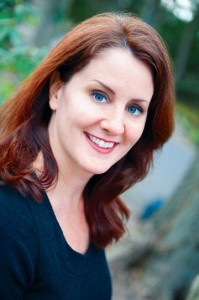
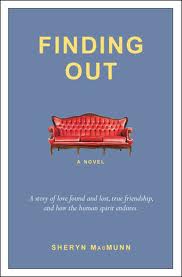
 1. Do you consider the first line to be an important part of a story? If so, why?
1. Do you consider the first line to be an important part of a story? If so, why? “Casey’s keen ear and eye for description make for a clean and leisurely read.”
“Casey’s keen ear and eye for description make for a clean and leisurely read.” 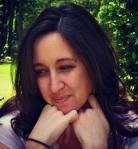 Do you consider the first line to be an important part of a story? If so, why?
Do you consider the first line to be an important part of a story? If so, why?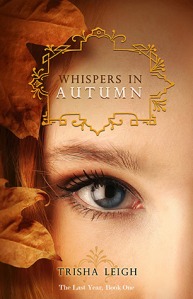 Raised by a family of ex-farmers and/or almost rock stars from Northeastern Iowa, I’ve always loved to tell stories. After graduating from Texas Christian University with a degree in Film, I began to search for a way to release the voices in my head. IWhen I attempted my first YA novel, which would become Whispers in Autumn, I was hooked. I knew then my heart lay with telling stories about and for young adults, and for anyone who loves to read and recapture those fleeting “first” moments.
Raised by a family of ex-farmers and/or almost rock stars from Northeastern Iowa, I’ve always loved to tell stories. After graduating from Texas Christian University with a degree in Film, I began to search for a way to release the voices in my head. IWhen I attempted my first YA novel, which would become Whispers in Autumn, I was hooked. I knew then my heart lay with telling stories about and for young adults, and for anyone who loves to read and recapture those fleeting “first” moments.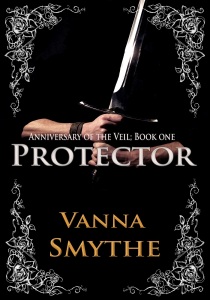
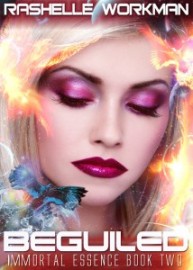 Venus has become immortal, just as she always wanted. In the process she hurt Zaren, lost Michael, and destroyed her family.
Venus has become immortal, just as she always wanted. In the process she hurt Zaren, lost Michael, and destroyed her family.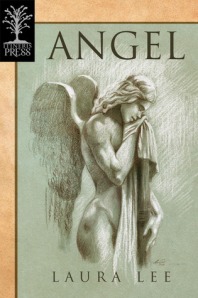 Since the loss of his lively, charming wife to cancer six years ago, minister Paul Tobit has been operating on autopilot, performing his religious duties by rote. Everything changes the day he enters the church lobby and encounters a radiant, luminous being lit from behind, breathtakingly beautiful and glowing with life. An angel. For a moment Paul is so moved by his vision that he is tempted to fall on his knees and pray. Even after he regains his focus and realizes he simply met a flesh-and-blood young man, Paul cannot shake his sense of awe and wonder. He feels an instant and overwhelming attraction for the young man, which puzzles him even as it fills his thoughts and fires his feelings. Paul has no doubt that God has spoken to him through this vision, and Paul must determine what God is calling him to do.Thus begins a journey that will inspire Paul’s ministry but put him at odds with his church as he is forced to examine his deeply held beliefs and assumptions about himself, his community, and the nature of love.
Since the loss of his lively, charming wife to cancer six years ago, minister Paul Tobit has been operating on autopilot, performing his religious duties by rote. Everything changes the day he enters the church lobby and encounters a radiant, luminous being lit from behind, breathtakingly beautiful and glowing with life. An angel. For a moment Paul is so moved by his vision that he is tempted to fall on his knees and pray. Even after he regains his focus and realizes he simply met a flesh-and-blood young man, Paul cannot shake his sense of awe and wonder. He feels an instant and overwhelming attraction for the young man, which puzzles him even as it fills his thoughts and fires his feelings. Paul has no doubt that God has spoken to him through this vision, and Paul must determine what God is calling him to do.Thus begins a journey that will inspire Paul’s ministry but put him at odds with his church as he is forced to examine his deeply held beliefs and assumptions about himself, his community, and the nature of love.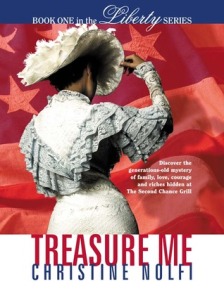
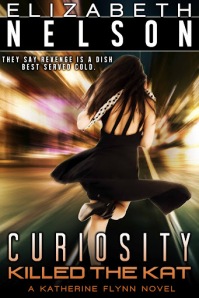
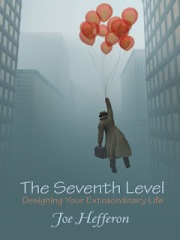
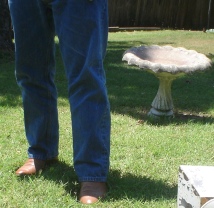
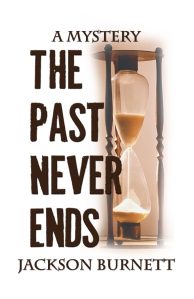 Jackson Burnett is the author of The Past Never Ends, a newly published legal mystery from Deadly Niche Press. A sometimes teacher of creative writing, Burnett enjoys Italian opera, the roller derby, and reading trashy novels. He also writes short literary fiction and essays. His prose has been compared to that of Raymond Chandler, Sarah Vowell, and Garrison Keillor among others.
Jackson Burnett is the author of The Past Never Ends, a newly published legal mystery from Deadly Niche Press. A sometimes teacher of creative writing, Burnett enjoys Italian opera, the roller derby, and reading trashy novels. He also writes short literary fiction and essays. His prose has been compared to that of Raymond Chandler, Sarah Vowell, and Garrison Keillor among others.